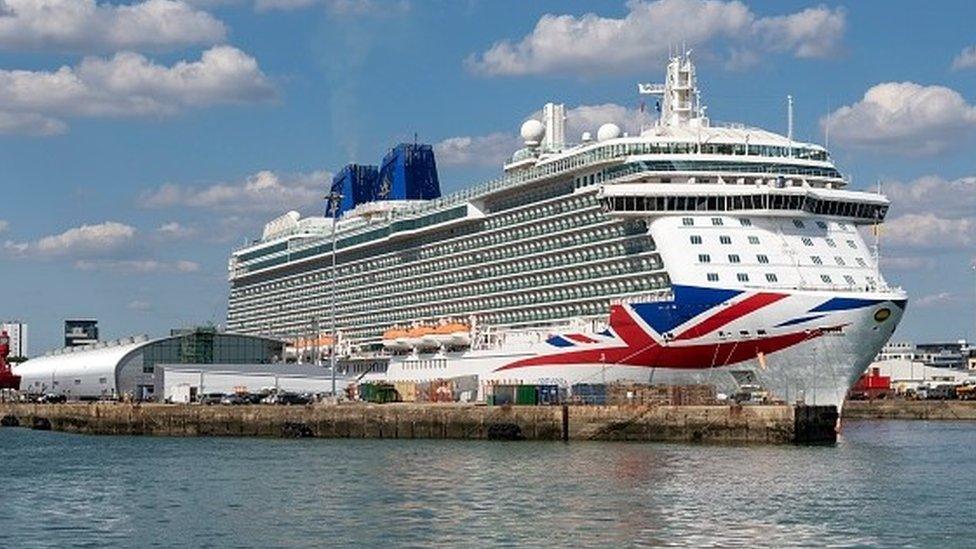Coach Holidays: 'More than a business, we're family'
- Published
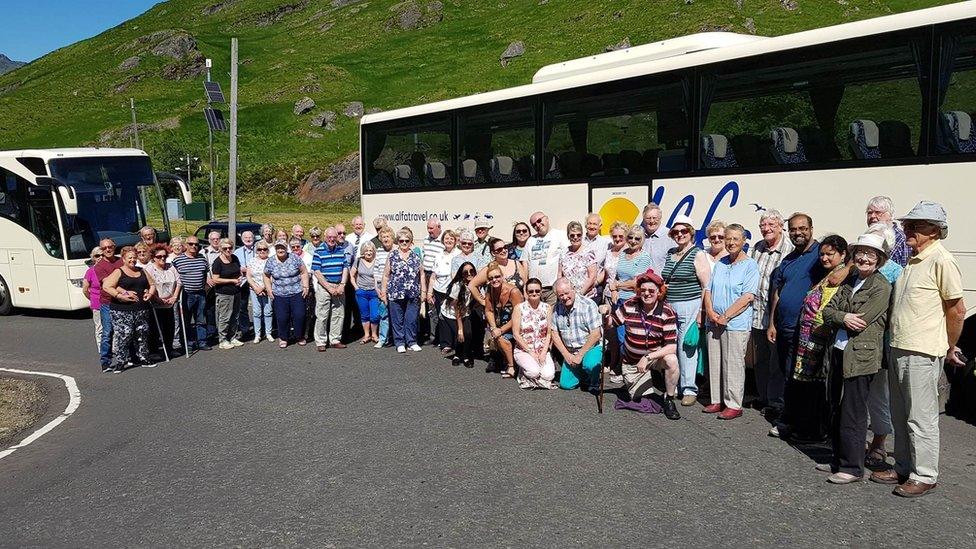
An Alfa Leisure tour party in pre-Covid times
Lancashire coach company Alfa Leisureplex's 48 coaches have sat, unused, in the depot for months.
But managing director Emma Russell and her team have been keeping close to their customers, calling them up: "I just want to make sure they're OK," she explains. "They are so isolated. One lady I spoke to on the phone hadn't spoke to anyone else in months."
In 2019 Alfa Leisureplex took 120,000 people on holidays and daytrips; through green glens in the Scottish Highlands, down to sandy coves in Cornwall.
Now the business's Facebook group is a lifeline for those missing their holidays, as well as a gateway to happy memories. It's the first thing many check each morning.
Emma stands opposite a blustery Blackpool South Pier. Behind her, one of Alfa's 22 hotels stands empty. There's no whirr of amusement arcades, no smell of salty chips and candy floss. Even the seagulls are silent.
The regular trippers are heartbroken.
Beryl, Barbara, Ian and Kate have been travelling with the company for a decade and already have four trips booked for later this year and they cannot wait to get away again.
The convenience of coaches is a lifeline to the millions who use them who are often older, vulnerable, or living alone.
Up the road in Freckleton, Hillary travels solo, but always makes new friends. "You don't realise how much holidays mean until you can't have one."
Coach Tourism is big business. The industry employs 42,000 people, most in tiny family firms, that add £14bn a year to British tourism.
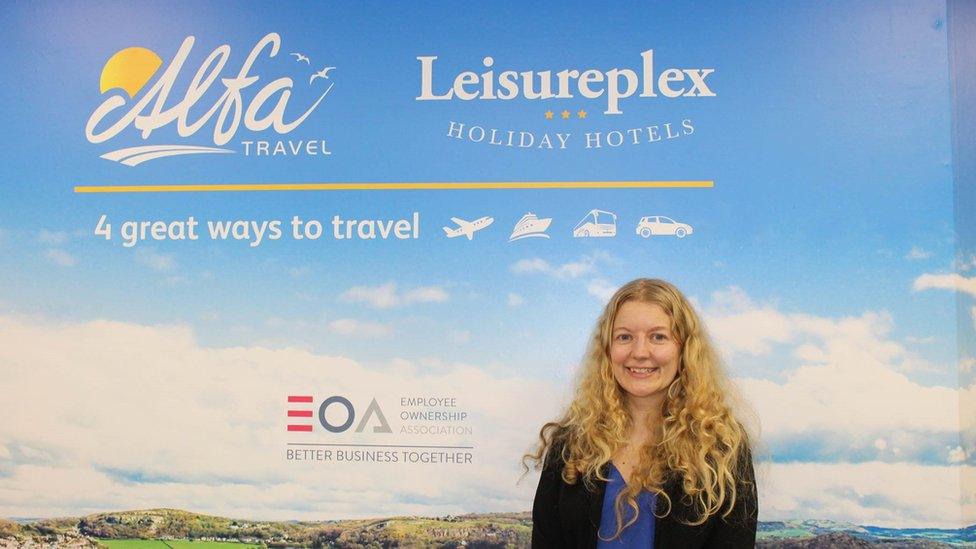
Emma Russell says her Alfa Leisureplex customers are family
Most of Alfa's 700 staff are still furloughed, but those still working are busy.
"There is huge demand, in fact we're getting ready to take people on coach holidays who have never done it before," says Emma. "We are one of the lucky ones. But it's been so hard."
Campaigners say government support for coach holidays has been inconsistent and the industry is warning that as many as 40% of operators could go into administration, putting 24,000 jobs at risk.
In Coventry, Robert Shaw heads his family's coach holiday business, Harry Shaw, but also chairs the Coach Tourism Association: "We fall down the crack between transport and tourism and we have not been supported."
'Huge burden'
In Scotland and Northern Ireland a specific grant scheme was set up for the sector. In Wales, coach businesses have been included with travel and leisure. But in England, guidance has been unclear.
Robert Shaw says: "It's been a real lottery, council to council, as to whether the businesses have been considered as eligible."
Much of this comes down to their bricks and mortar - the businesses rates on buildings are used to calculate some grants.
But also these are companies with high costs: a luxurious new coach costs around £250,000. Most are leased. A six-month repayment holiday was in place last year. But not now.
"So long as these vehicles sit in depots not going anywhere, keeping up these financial obligations is a huge burden," explains Robert. He feels he and his members have been cast aside.
"What help we've been given has been too little, too late," he said. "I know it's not glamorous. Coach holidays are perceived as unfashionable. But we should be recognised."
'Drop in a pint glass'
The Department for Transport said: "We understand this is a challenging time for the coach industry."
It added that financial support such as the Coronavirus Job Retention Scheme and Business Interruption Loan Scheme were available. "We continue to work closely with representatives from the coach sector to understand the ongoing risks and issues the sector faces and how these could be addressed."
Back in Blackpool, Emma and her colleagues have taken out £10m in loans to keep the company going. They applied to the local council for a grant but received only £10,000. "It's a drop in a pint glass," says Emma.
She knows that had her business not been in good financial health before the pandemic, it would have folded, taking 750 jobs in one of the most deprived corners of the country with it.
But Emma also wonders what would fill the void left if coach holidays vanished for passengers, too.
"We are more than just a business," she says. "We're family."
Related topics
- Published17 August 2021
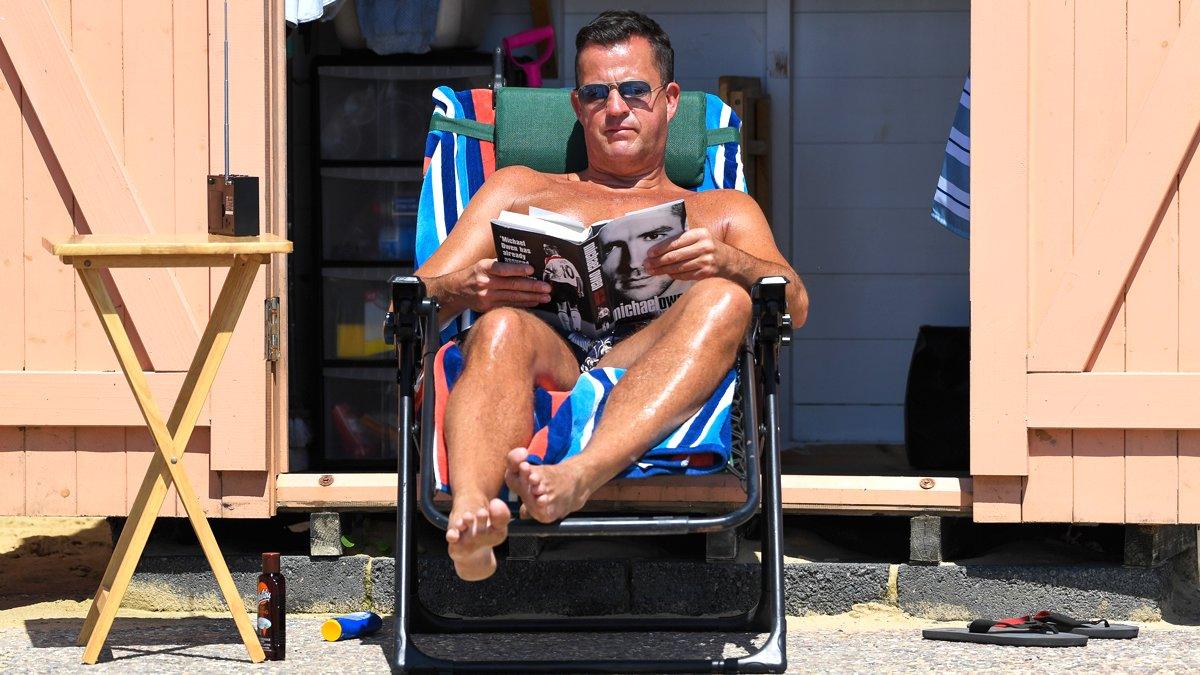
- Published19 March 2021
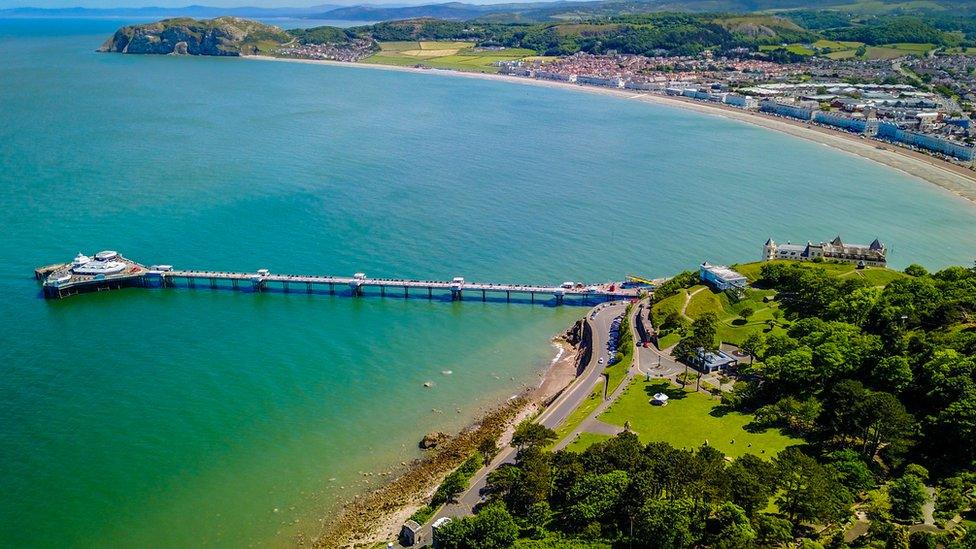
- Published17 March 2021
